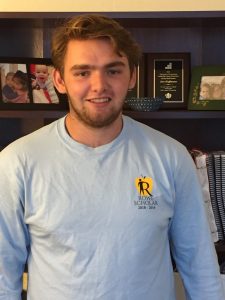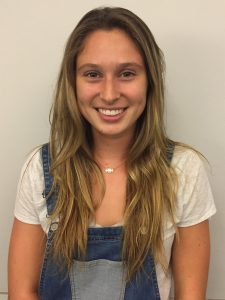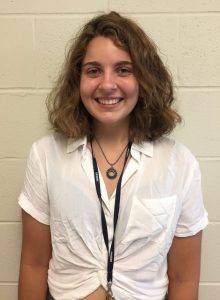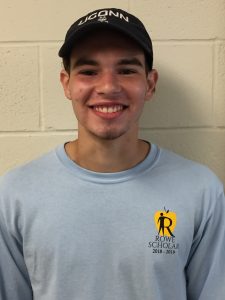Rat Models and Human Hearing: The Categorical Perception of Species-Specific Rate Vocalization
Spring 2018
Principle Investigator: Heather Read
Contributors: Sharon Cherian, Caitlyn Cody, Mackenzie Zapata, Timothy Nolan, Peter Satonick
Several studies have shown that humans and rats are able to differentiate timing cues in sound sequences. The importance of timing cues for speech and word recognition in normal hearing of adults has been recognized by Shannon (1995) and Souza (2015) who outlined the significance of timing cues for speech recognition among the aging human population, that commonly encounter tone frequency hearing loss. Rats are able to communicate and recognize non-speech vocalizations, as do humans.
We will use the two-alternative forced choice (2AFC) task to train rats to discriminate vocalizations (Gaese et al., 2006; Zarillow and Zador, 2014). The rats will be placed in a sound proof training booth that have nose poke ports on the inside. In the first stage (early stage) of the task, the rats will be receiving a “direct reward” for learning to associate one vocalization with sound delivery with a reward from a port located on the right, and another with sound delivery and reward from a port on the left. First rats are trained incrementally to hold in the Central Nose Port for 150-600 milliseconds to initiate their trial. After holding and hearing the sound play for this duration, the rat needs to navigate to the correct port to receive their reward. The reward is in the form of strawberry or chocolate Ensure protein solution. Once the performance criterion reaches 70-100% for discriminating, the rats will be switched to the “Indirect” phase for the 2AFC paradigm. The sounds in this stage will all be delivered from a central speaker, removing the location cue indicating where the reward might be. Once the rats reach 70-100% correct for the “indirect phase,” they can now be tested in the 2AFC task for discrimination of sound sequences that vary in: timing cues only or timing plus tonal cues combined together.
My research project is essential to understanding more about the auditory system through the examination of interactions between tonal and timing perceptual cues. The results from this research project will allow us to have a more in-depth understanding about not only the auditory system, but how humans perceive specific vocalization sequences and discrimination abilities. Using these results, this will be able to provide valuable insight about human hearing and aging. Hearing aids are widely used by the elderly population, so the results will allow us to optimize hearing aids, as humans do rely heavily on temporal cues to speech. Thus, these results will not only add more to our general understanding about the auditory system, but also allow for improvement for hearing aid devices and other related advancements in clinical settings.
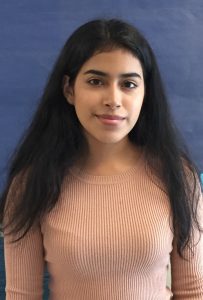 Irma “Camila” Martinez is an award-winning artist who enjoys taking art classes as a way to find balance in her schedule. She’ll be a molecular and cell biology major on the pre-med track at UConn, and hopes to get involved in research and clinical work. In high school she was a member of the medical club, which allowed her to learn about different medical roles, technology, and education. One of the club’s notable speakers was a cardiologist whose enthusiasm made her appreciate those who work in the medical field. Irma also found it to be an incredibly rewarding experience to shadow her aunt, an oral surgeon. Originally from Lima, Peru, Irma now lives in West Hartford, CT and graduated from Hall High School.
Irma “Camila” Martinez is an award-winning artist who enjoys taking art classes as a way to find balance in her schedule. She’ll be a molecular and cell biology major on the pre-med track at UConn, and hopes to get involved in research and clinical work. In high school she was a member of the medical club, which allowed her to learn about different medical roles, technology, and education. One of the club’s notable speakers was a cardiologist whose enthusiasm made her appreciate those who work in the medical field. Irma also found it to be an incredibly rewarding experience to shadow her aunt, an oral surgeon. Originally from Lima, Peru, Irma now lives in West Hartford, CT and graduated from Hall High School.